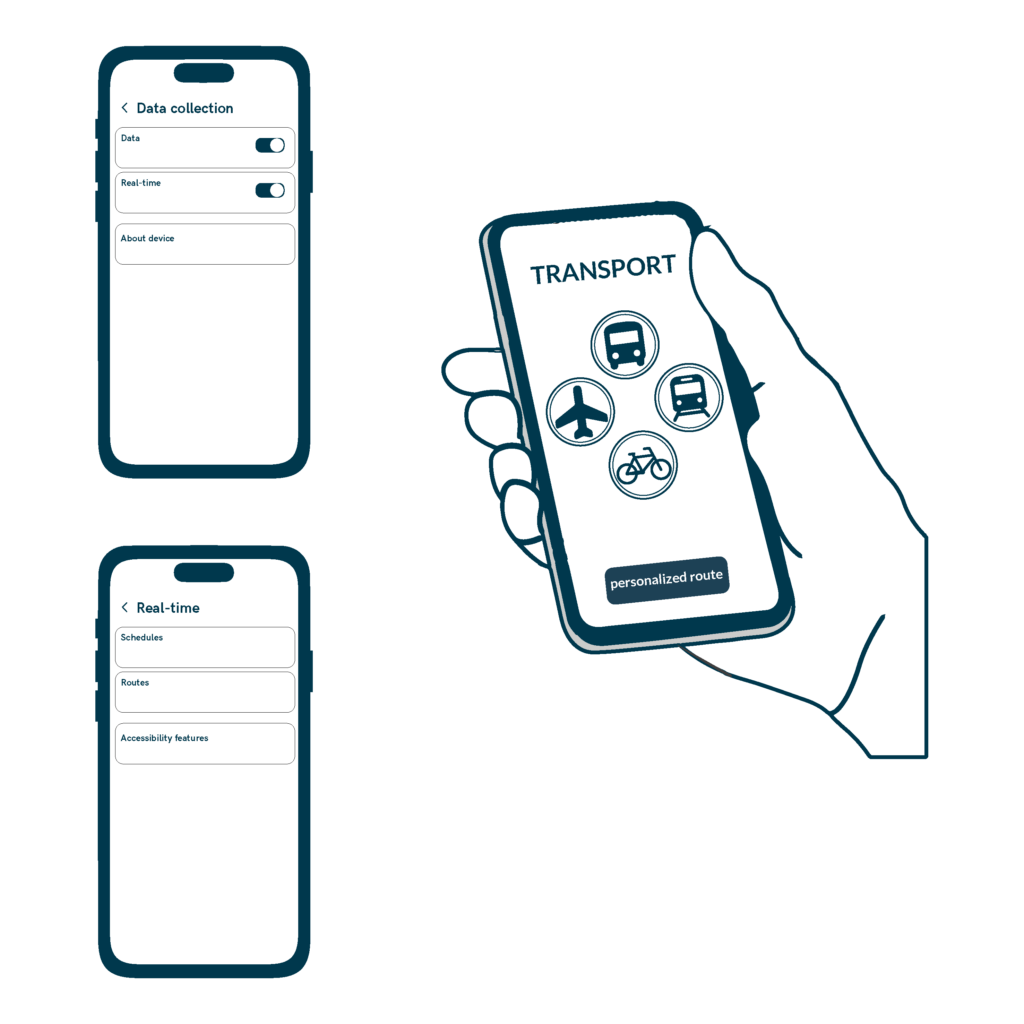Transport Data Collection
Understanding the travel experiences of people with disabilities is essential for designing accessible transportation systems. Assistive technologies that collect real-time travel data can help optimize transit routes, improve accessibility features, and enhance overall public transport usability. Ensuring privacy and inclusivity in data collection enables more equitable urban planning. Ongoing testing, user feedback, and system updates help keep transportation systems responsive to accessibility needs.

- Ensure that data collection respects privacy and complies with accessibility regulations.
- Test technologies in diverse transportation settings to ensure reliability and effectiveness.
- Provide users with control over how their data is collected and used.
- Use collected data to improve public transport schedules, routes, and accessibility features.
- Educate transportation providers on best practices for serving passengers with disabilities.
Sources
- https://accessible-eu-centre.ec.europa.eu/content-corner/digital-library/en-172102021-accessibility-and-usability-built-environment-functional-requirements_en
- https://www.access-board.gov/adaag-1991-2002.html#2.%20GENERAL
- https://universaldesign.ie/built-environment/building-for-everyone/building-for-everyone-full-series
- https://www.codigotecnico.org/pdf/Documentos/SUA/DccSUA.pdf
- Carers
- Children
- Cognitive
- Cognitive abilities
- Decolonial perspective
- Digital
- Digital barrier
- Enviroment
- Environmental
- Gender and generations
- Gender perspective
- Hearing impairment
- Low-education
- Low-income
- Older people
- Other
- Physical abilities and features
- Sensory and Physical
- Socioeconomic
- Visual impairment